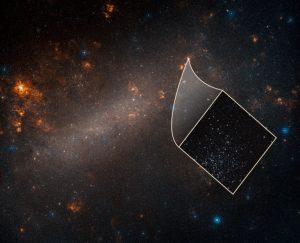The universe is expanding faster than expected, suggesting that astronomers may have to incorporate some new physics into their theories of how the cosmos works, a new study reports.
The revised expansion rate is about 10% faster than that predicted by observations of the universe’s trajectory shortly after the Big Bang, according to the new research. The study also significantly reduces the probability that this disparity is a coincidence, from 1 in 3,000 to just 1 in 100,000.
“This mismatch has been growing and has now reached a point that is really impossible to dismiss as a fluke,” study lead author Adam Riess, a professor of physics and astronomy at The Johns Hopkins University in Baltimore, said in a statement.
“This is not what we expected,” said Riess, who won the Nobel Prize for physics in 2011 (along with Brian Schmidt and Saul Perlmutter) for showing, in the late 1990s, that the universe’s expansion is accelerating. It’s unclear what’s driving this surprising acceleration, but many astronomers invoke a mysterious, repulsive force called dark energy.
Read more HERE
Ask me anything
Explore related questions





